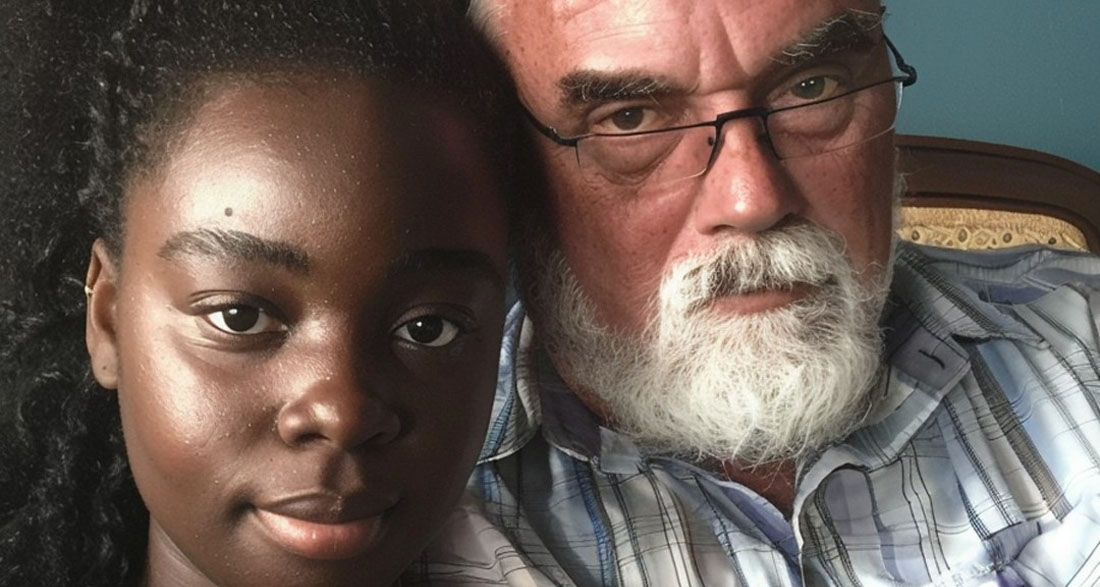The Truth I Never Knew
For thirty years, I believed I was adopted. I thought my real parents had abandoned me, unable to care for me. This belief shaped who I was—someone who was unwanted, someone who had to prove they were worth keeping. But one trip to the orphanage changed everything, revealing a truth far more painful than I could ever have imagined.
I still remember the first time my dad told me I was adopted. I was only three years old, sitting on the couch with a tower of colorful blocks proudly stacked beside me. My favorite stuffed rabbit was clutched in my small hands, and my dad was beside me, his hand resting gently on my shoulder.
“Sweetheart,” he began softly, his voice full of weight, “Your real parents couldn’t take care of you. So your mom and I adopted you to give you a better life.”
“Real parents?” I asked, tilting my head in confusion.
“Yes,” he answered, managing a faint smile, “But they loved you very much, even if they couldn’t keep you.”
The word “love” made me feel safe. I nodded, feeling comforted. “So you’re my daddy now?” I asked, unsure of what it all meant.
“That’s right,” he said, pulling me into a warm hug. For that moment, I felt like I truly belonged somewhere, with him.
But six months later, my mom died in a car accident. The only clear memory I have of her is her warm smile, always so soft and kind. After that, it was just me and Dad.
At first, Dad tried his best. He made me peanut butter sandwiches just the way I liked them and let me watch cartoons on Saturday mornings. But as I grew older, things started to change. His patience wore thin, and soon, I was seeing a side of him that felt colder.
By the time I was six, I could feel the shift in his attitude.
One day, I struggled to tie my shoes, tears forming as I fumbled with the laces. Instead of helping, Dad muttered, “Maybe you got that stubbornness from your real parents.”
“Stubborn?” I asked, confused, looking up at him.
“Just figure it out,” he snapped, walking away without offering a hand.
It became a pattern. Whenever I made a mistake, he blamed it on my “real parents.” If I failed a math test, or spilled juice on the carpet, it wasn’t because I was just a kid—it was because of the people who had “abandoned” me.
On my sixth birthday, Dad threw a barbecue. I was excited to show off my new bike to the neighborhood kids. As the adults chatted, I ran around, happy to finally have something to share. But then, Dad raised his glass and casually said, “You know, we adopted her. Her real parents couldn’t handle the responsibility.”
The words hit me like a slap. I froze, my plate of chips trembling in my hands as I looked around at the people staring.
A woman frowned, pity in her eyes. “Oh, how sad,” she murmured.
Dad nodded, not noticing how much it hurt. “Yeah, but she’s lucky we took her in.”
The other kids heard, and the whispers started.
“Why didn’t your real parents want you?” one boy sneered.
“Are you gonna get sent back?” a girl giggled.
I ran home crying, my heart heavy. When I told Dad, he shrugged. “Kids will be kids,” he said, his tone dismissive. “You’ll get over it.”
But I never did.
Each birthday after that became a reminder of how “lucky” I was. Dad would take me to the local orphanage, pointing out the kids playing outside. “See how lucky you are?” he would say, his voice cold. “They don’t have anyone.”
By high school, I hated my birthday. I felt the weight of being unwanted. I tried my hardest to prove I was worth keeping, but deep down, I always felt like I wasn’t.
When I turned sixteen, I finally mustered the courage to ask Dad about my adoption.
“Can I see the papers?” I asked, my voice quiet but steady.
Dad left the room and returned with a single page—a certificate with my name, a date, and an official-looking seal. “There,” he said, tapping the page with a finger. “Proof.”
It looked real, but something about it felt incomplete. Still, I didn’t ask more questions.
Years later, I met Matt. He was different. He saw past the walls I’d built up. One night, as we sat together, he noticed how little I spoke about my family.
“You don’t talk about your family much,” he remarked, his eyes full of curiosity.
“There’s not much to say,” I replied flatly.
But Matt didn’t let it go. After I told him about the adoption, the teasing, and the visits to the orphanage, he gently asked, “Have you ever thought about looking into your past? To find out more?”
I shook my head. “Why would I? My dad already told me everything.”
“What if there’s more?” he asked, his voice soft but persistent. “Wouldn’t you want to know?”
For the first time, I hesitated.
With Matt’s encouragement, we decided to visit the orphanage where I was supposedly adopted. The small brick building looked worn but still full of character. Its faded playground stood strong, a symbol of the many children it had sheltered.
Inside, a kind woman at the front desk greeted us warmly. I explained my situation and asked for any information about my biological parents.
She took my name and the adoption details, then started searching through the records. The sound of the keyboard clacking filled the quiet room as she flipped through binder after binder.
Minutes passed. Her frown deepened as she searched. Finally, she looked up, her face apologetic.
“I’m sorry,” she said softly. “We have no record of you here.”
“What?” I whispered, my stomach dropping. “That can’t be right. My dad told me I was adopted from this orphanage.”
Matt leaned forward, a confused look on his face. “Could there have been a mistake? Another orphanage, maybe?”
She shook her head. “We keep meticulous records. If you were here, we’d know. I’m so sorry.”
The drive back to Dad’s house was suffocating. My mind raced with questions, fear, and confusion.
When we arrived, I confronted him. “We went to the orphanage,” I said, my voice shaking. “They have no record of me. Why would they say that?”
Dad’s face went pale. He stared at me for what felt like an eternity, then sighed deeply. “Come in,” he said quietly.
In the living room, Dad sank into his chair, rubbing his temples as if bracing for something. “I knew this day would come,” he muttered.
“What are you talking about?” I demanded, my heart pounding. “Why did you lie to me?”
He looked up at me, his eyes full of regret. “You weren’t adopted,” he said softly. “You’re your mother’s child… but not mine. She had an affair.”
The words felt like a punch to the chest.
“She cheated on me,” Dad continued bitterly. “When she got pregnant, she begged me to stay. I agreed, but I couldn’t look at you without seeing what she did to me. So, I made up the adoption story.”
My hands trembled, and my mind couldn’t process what he was saying. “You lied to me for thirty years because you couldn’t handle your pain?”
He nodded slowly. “I was angry. Hurt. I thought… if you believed you weren’t mine, it would be easier for me. I’m sorry.”
Tears blurred my vision as I stood up. “You made me feel like I didn’t belong for something that wasn’t even my fault,” I said, my voice breaking.
“I can’t do this right now,” I added, turning to Matt. “Let’s go.”
As we walked out the door, I heard Dad’s voice, full of regret, calling after me. “I’m sorry!”
But I didn’t look back. The life I thought I knew had been a lie. And now, I had to figure out who I really was—on my own terms.
What do you think of the story? Share your thoughts in the comments below! 😊














